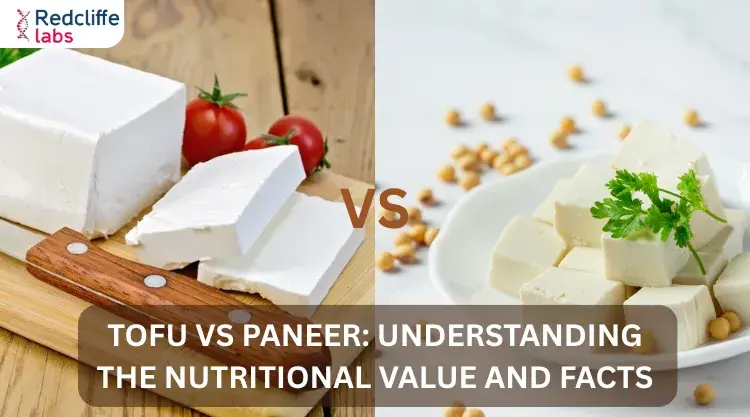Vitamin D Foods: Boost Your Health with Nutrient-Rich Choices

Medically Reviewed By
Dr Divya Rohra
Written By Sheena Mehta
on Aug 7, 2024
Last Edit Made By Sheena Mehta
on Jul 19, 2025

Introduction
While you can sit under the shade of the sun to get some vitamin D, eating vitamin D foods, including dairy products, fatty fish, mushrooms, and eggs, is essential for your health. Vitamin D-rich foods are the foundation of a balanced diet and are always recommended to balance the shortage of vitamin D in the body.
Also referred to as calciferol, Vitamin D is one of the crucial vitamins that helps maintain strong and healthy bones, supports the immune system, aids calcium absorption, and safeguards against illnesses and conditions. Vitamin D is a significant, fat-soluble vitamin in the human body that controls the optimum levels of calcium, magnesium, and phosphorus. Nonetheless, when exposed to sunlight, our bodies can produce vitamin D, which is essential for various bodily functions.
Role and Need of Vitamin D
Vitamin D is a nutrient we need and a hormone our body makes. It is a fat-soluble vitamin that supports the body to absorb and retain calcium and phosphorus. Some foods naturally contain vitamin D, while others, such as soy milk, cow’s milk, orange juice, and oatmeal, are fortified with it.
Vitamin D has a distinct quality and involves numerous processes. Let’s explore the role and significance of vitamin D in the human body:
- Influences the immune system: Vitamin D manages the functioning of immune cells and reduces inflammatory reactions. Besides, a sufficient vitamin D level has been linked to a reduced possibility of rheumatoid arthritis and other autoimmune illnesses.
- Increases the risk of heart conditions: Studies reveal that lower levels of vitamin D can pose a threat to heart conditions, resulting in heart failure, heart stroke, and coronary artery disease.
- Maintains Optimal Mental Health: Low levels of vitamin D can increase the risk of developing conditions such as depression, seasonal affective disorder (SAD), and cognitive decline.
- Ensures sufficient vitamin D levels: Sunlight for approximately 10–30 minutes, twice or three times per week, ensures the body has adequate vitamin D levels.
- Asthma Control: The exact connection between asthma and vitamin D is complicated. However, some studies propose that vitamin D deficiency can worsen asthma symptoms and poor asthma control.
- Promotes general well-being: Vitamin D supports overall health and well-being. Adequate vitamin D levels can contribute to maintaining proper brain function, supporting energy levels, optimal hormone levels, and promoting healthier skin.
- Regulates gene expression: Vitamin D acts as a hormone in the body, impacting over 200 gene expressions. These genes contribute to cell growth, immune control, and DNA restoration. Besides, vitamin D also influences gene expression linked to cancer.
Hence, it proves that vitamin D is a significant element the body needs to preserve overall health and welfare. However, if you are stuck on vitamin D foods that are good for your health, below is a compilation of foods renowned for their high vitamin D content.
Also read:
https://redcliffelabs.com/myhealth/health/everything-you-need-to-know-about-vitamin-d/
Deficiency of Vitamin D in the Body Can Lead to:
When the body is vitamin D deficient, it can cause various health problems. While our body can produce vitamin D, certain individuals may be more susceptible to experiencing a lack of vitamin D in the body, and it will result in:
- Brittle and Weak Bones: Insufficient vitamin D levels can cause osteomalacia in adults or rickets in children. In this condition, the bone becomes weak, brittle, and susceptible to fractures.
- Heightens the risk of osteoporosis: Vitamin D insufficiency can negatively influence the body’s capacity to absorb calcium from the diet. This may heighten the risk of osteoporosis.
- Weaken Muscles: The lack of vitamin D results in weakened muscles and potentially even muscle pain.
- Hinders Immune Functionality: Vitamin D’s insufficient levels can impact your ability to move and perform physical tasks, making it challenging to complete even day-to-day chores.
- Can develop chronic diseases: There is a correlation between a lack of vitamin D and an increased risk of developing various chronic diseases, such as diabetes, cardiovascular disease, and cancers such as colon, prostate, and breast.
Also read:
https://redcliffelabs.com/myhealth/food-creative/best-foods-to-combat-vitamin-d-deficiency/
7 Foods Rich in Vitamin D Enhance Overall Health and Well-being
Here are some vitamin D foods that can affect bodily functions, including bone health immune function, and promote overall health and well-being.
- Fatty fish such as salmon, mackerel, sardines, and tuna are some popular fatty fish. They can boost your vitamin D intake and offer numerous health benefits.
- Egg yolks are versatile and nutritious sources of vitamin D. The vitamin D in eggs comes from their yolks, so it's important to eat the whole egg, not just the whites. On average, the yolk from one large egg contains about 37 IU of vitamin D. Hence, incorporating egg yolks into your diet will benefit your body.
- Cod Liver Oil: Did you know that a single tablespoon of cod liver oil contains about 1360 IU of vitamin D? It is also rich in omega-3 fatty acids, which are essential for heart health, brain function, and reducing inflammation.
- Mushrooms are plant-based sources of vitamin D. One cup of UV-exposed white button mushroom can provide about 366 IU of vitamin D.
- Cereal and Oatmeal: They are convenient ways to boost your vitamin D. They are made from whole grains and aid in maintaining stable blood sugar levels.
- Fortified Cereals: The vitamin D content in breakfast cereals varies between 40 and 100 IU per serving.
- Fortified Oatmeal: Instant oatmeal brands are fortified with vitamin D, providing around 154 IU per packet.
- Vitamin D-fortified foods such as cow’s milk, soy milk, and orange juice boost your vitamin D intake, especially if you barely get sunlight or have dietary restrictions.
- Canned tuna is a nutritious source of vitamin D, an excellent source of lean protein, and contains heart-healthy omega-3 fatty acids. It is also a low-calorie food that can aid in weight management.

Conclusion:
Our bodies make vitamin D on its own from the sun's ultraviolet rays, it is not necessary for this to meet your needs. The Centers for Disease Control (CDC) suggest limiting UV exposure to reduce the risk of skin cancer by wearing sunscreen, covering up when in the sun, and spending more time in the shade.
Vitamin D foods or supplements are considered the best sources for meeting vitamin D needs.
5 Frequently Asked Questions: Vitamin D foods
1. What is the daily value (DV) for vitamin D?
The vitamin D’s daily value is 800 international units (IU).
2. Which vegetables are a good source of vitamin D?
Animal foodstuffs are a source of vitamin D. Very few vegetables naturally contain significant amounts of vitamin D. However, UV-exposed mushrooms can produce vitamin D2. Besides, fortified plant-based products such as milk and juice contribute to vitamin D intake.
3. Which foods are the best natural sources of vitamin D?
The best natural sources of vitamin D are fatty fish, egg yolks, and cod liver oil.
4. Can I get vitamin D from plant-based foods?
Yes. Plant-based vitamin D foods include mushrooms exposed to sunlight. Fortified foods such as cereals, plant-based milk, and orange juice can also provide vitamin D.
5. Does cheese contain vitamin D?
Yes. Natural cheese contains an insignificant amount of vitamin D. However, fortified cheeses can provide more vitamin D.




